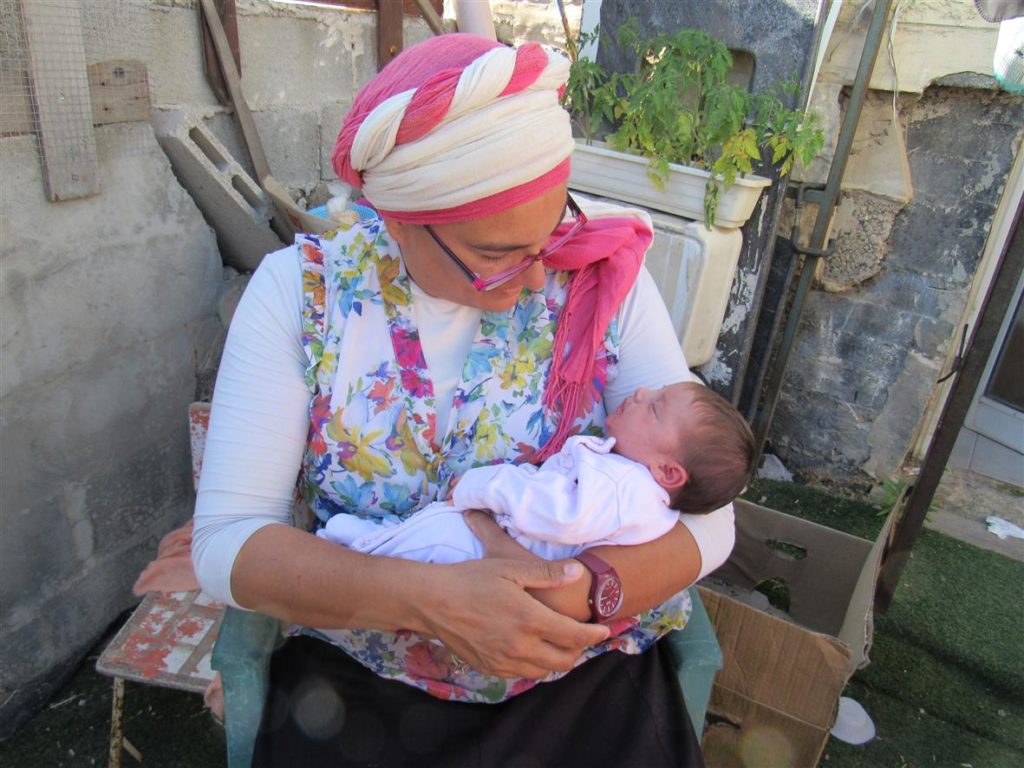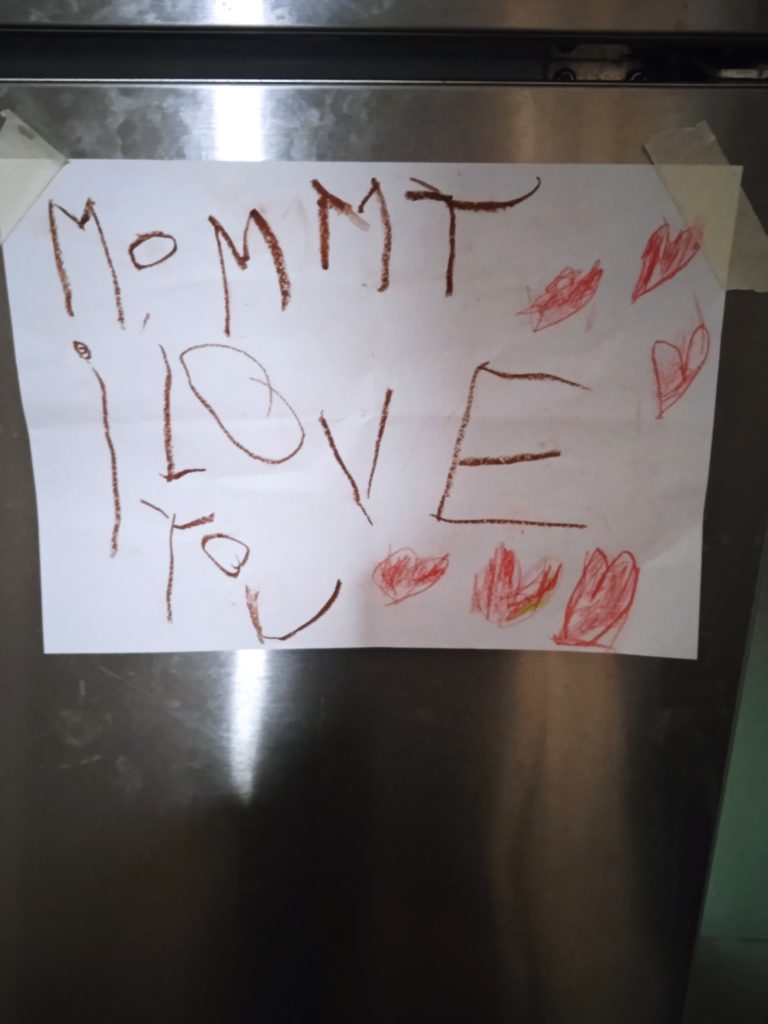I’m getting a lot of opportunities in a one week period to discuss how the twins were when they first arrived at our home 7.5 months ago, and it’s providing me with a lot of reflection.
First I had an hour long conversation with our social worker, who is preparing a report for the follow-up from the first committee meeting that took place the month after they were placed with us.
Last week I had a meeting with dd6’s kindergarten teacher, private teacher, and the head of special ed in the area. Though there are a couple of areas that they brought up that could use improvement, overall she is doing really well.
I’ll be meeting in the morning with my husband for the intake for the therapist for ds6, who will be starting movement therapy with him at his kindergarten once a week.
In a couple of days, our social worker will be coming for a visit with the guardian ad litem (kids’ court representative), who has been a proverbial thorn from before the placement took place. (I know she’s operating from what she feels to be in the best interest of the children, which she has until now has been convinced is not with us, because we’re charedi and because of where we live. This is why she opposed their placement here and advocated for them to instead be placed in separate adoptive homes.)
My social worker has been pushing her very much to meet us, because she thinks if she would know who we actually are, she would be able to move past the stigmas she’s operating under. I’m looking forward to finally meeting her. Since she’s a lawyer, I have a feeling we’ll be talking more about more nuts and bolts like wanting to see the beds the kids sleep in than their emotional state, but we’ll also be talking with her about how they were when they came and how they are now.
Yesterday my husband and I had an intake meeting with the child therapist for dd6. I got a really good feeling from her the moment we stepped into her therapy room – it was cozy, super child friendly, homey and authentic. A very good vibe, and I really enjoyed meeting her. (I have a lot of meetings for the twins because I have to, but my husband also said this was one that he also enjoyed.) She’s been doing this therapeutic work with children for 20 something years, is a parent of six, one of whom was adopted from foster care and one who is currently a foster child but in the process of being adopted. It’s a very nice and unexpected bonus that she has personal experience and perspective as a foster parent. Not only that, her foster child has the same guardian ad litem as the twins, so she understands the personality we’re dealing with.
I’m glad for dd6 that she’ll have a weekly opportunity to meet with this therapist. She seems fantastic! We spent the full hour going over dd’s history, and a little bit about our overall approach (there wasn’t enough time to go into detail about all the things we did and why). Usually she told me she has the session for the child together with the parent so she can give the parent guidance about how to support the child, but said in my case it won’t be necessary. She said we’ve done an amazing job and she doesn’t see why dd6 needs to come for therapy after all the work I’ve done with her. I explained that the court has determined it’s a prerequisite, and though I don’t think dd6 needs it, it can only benefit her.
She found it remarkable that in less than eight months dd and ds now have a good relationship, based on their history. When I corrected her and shared that four months after they came when they started school, I remember their teachers commenting on their beautiful relationship (“Oh, you can tell they’re twins by how close they are!” If only they knew…), she was shocked.
We’ve seen so many positive changes in the time that they’re with us, that describing them as they were and as they are now is describing very different behavior. I understand why it’s hard for someone with a legal background (guardian ad litem) to believe. Those with a psychology background understand why and how they could have grown so much but the speed is pretty remarkable to everyone, including me.
I attribute their tremendous emotional (and for ds – cognitive) growth in large part to them having spent three of the first four months of their placement with us at home full-time. Then after only a couple of week of school, there were over a month of holidays and then vacation due to the war, so it’s just in the last couple of months that they’ve been in kindergarten regularly. That has provided me with a lot of time with them, and them with me. (Obviously I’m not the only one in the house with them, but I’m the main caretaker.) It’s built a foundation of emotional security and trust for them that we couldn’t have built if they had been out of the house most of the day, for most of these months.
I’ve written before regarding my caution about parents depending on a weekly therapy to create a meaningful difference in a child. I was then writing about therapies like PT, OT, and speech. But I think the same thing is true with emotional therapy – once a week is great, but what happens the rest of the week? If you’re not actively following through on whatever the therapist is working on, the benefit is going to be much less than it could be.
While we aren’t officially labeled as a therapeutic foster home, in practice the kids have benefited from all day long ‘therapy’. Cognitive, sensory, language, constantly talking about emotions, how to deal with them, demonstrating, practicing – again and again and again.
We also have a number of physical aspects of our home – particularly our animals and outdoor space – that have been beneficial for them. When ds came, he spent long periods of time daily hugging and stroking our dog (suffocatingly so; our dog is very tolerant though I could tell he didn’t enjoy it). At least a few times a day he would say, “Right, Sheleg loves me and I love him?” I don’t know at what point I noticed that he didn’t do that anymore, but it was a very long time ago. Ds found a way to soothe himself in a healthy way and calm his anxieties that he could control from the very first day he was here, and gradually let go of that focus on our dog when he didn’t need it anymore.
As far as the outdoor space, it’s impossible for me to summarize the many benefits of hours of daily outdoor play for a child’s development. Books have been written about it.
Please don’t read this as me being self-congratulatory, because that’s not my intention. When we were told about the twins, it was a pretty intimidating description. My husband and I looked at each other and both of us wondered if this was going to be too much for us.
It has been a lot of work. While adding two young children clearly adds more physical work, the significant work was needing to stretch my patience and actively practice a higher level of self-awareness when interacting with them. Sometimes I felt very annoyed by things they did. I’ve worked hard to be kind and compassionate even when that wasn’t my natural reaction to what was happening in front of me. Prior to them coming I had a pretty high level of patience with my children and took most things in stride without being too bothered. I found myself tested in new ways when the twins came.
I struggled to find the balance between establishing and maintaining the super clear boundaries they needed, and feeling like a corrections officer. Different languages bring out different qualities in people, and when I speak Hebrew I feel like a tougher version of myself. Here I was speaking Hebrew with these children while needing to be extremely black and white about boundaries, and I often didn’t feel like my more relaxed self.
Changes happen slowly when you’re in the middle of things, and it was only recently that I realized it had been a long time since I felt very bothered by something they had done.
It’s very moving to see how well the twins have adjusted and are developing. It’s especially nice when people outside of our family validate that. While it hasn’t always been easy, I’m really glad they’re part of our family.
Avivah

